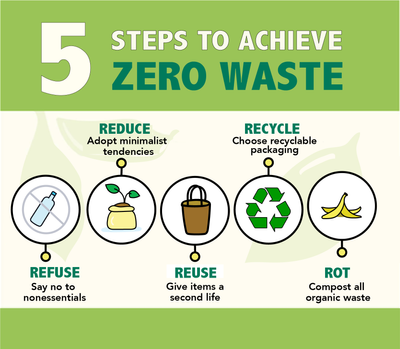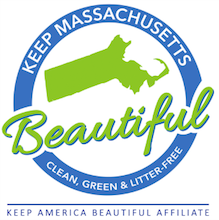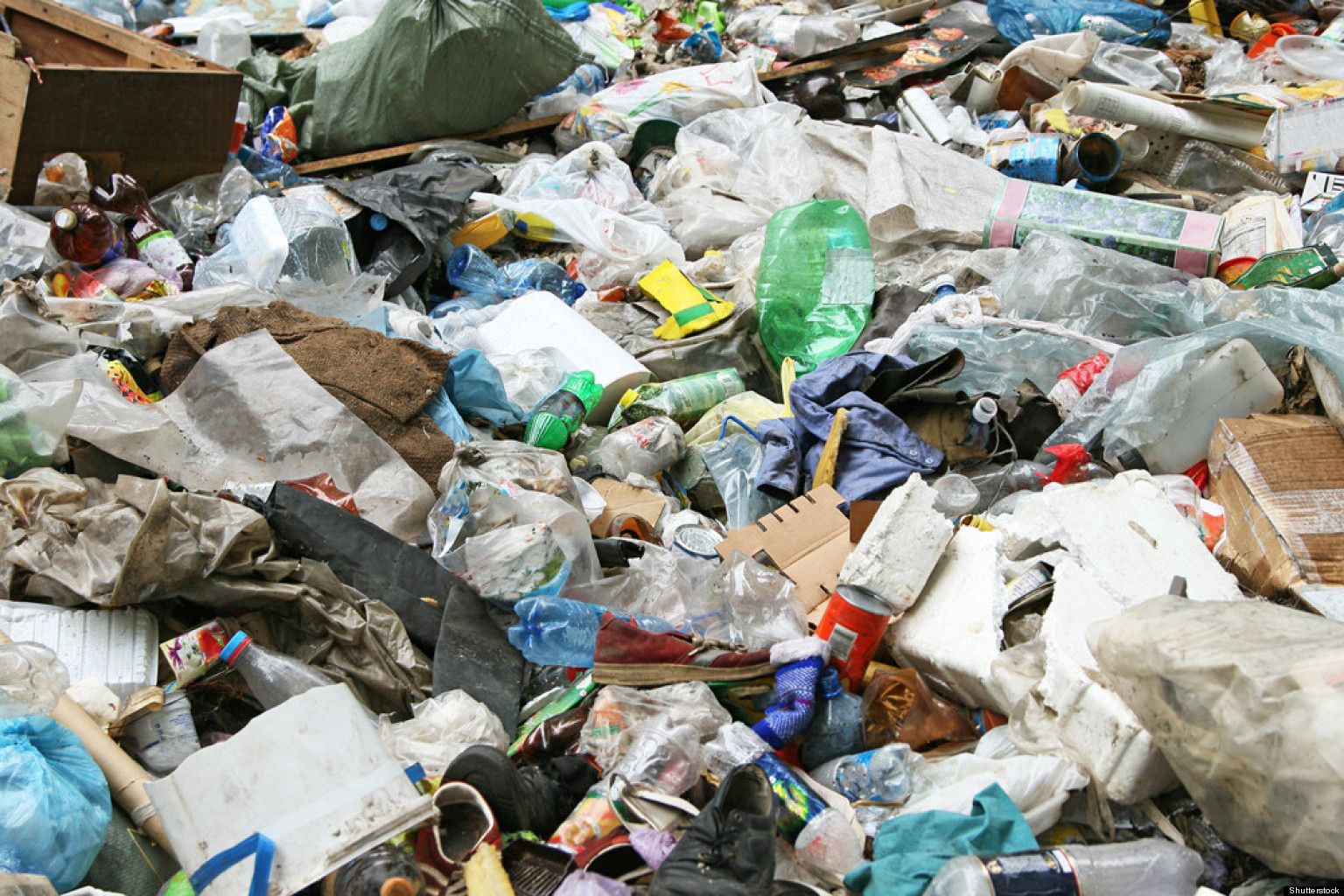What Does Zero Waste Mean?

Most Americans are familiar with the phrase “Reduce, Reuse, and Recycle.” These ideas have been promoted over the past few decades in an effort to reduce the amount of trash and litter here on planet Earth.
In practice, however, a majority of the public effort has been focused on encouraging consumers to recycle. Here in Massachusetts, there has been an additional focus on teaching consumers how to recycle correctly and to reduce contamination. Contamination occurs when non-recyclable items get mixed in with recyclables.
Despite good intentions and considerable investments in education, most American consumers don’t manage household trash and recycling correctly. Most of us haul our trash out to the curb or place it in a dumpster each week with little thought as to where it goes or what it costs to dispose of it. Yet each year, consumers, municipalities, and businesses in Massachusetts spend millions on solid waste disposal fees. The majority of this waste ends up in landfills or incinerators.
In some cases, items that may appear to be recyclable aren’t actually recyclable. That's because consumer product companies and plastic manufacturers have slapped the familiar “chasing triangles” recycling emblem on virtually every product they sell, even on products for which there is no end market to recycle a particular material, such as Styrofoam® cups.
Little progress has been made in reducing the consumption of single-use plastic items, as our economy is based on the premise of increasing growth and consumption. Case in point: Americans bought 14.4 billion gallons of bottled water in 2019 and global sales are expected to grow to $307 billion by 2025. And while efforts to promote the reuse of other products have gained some traction with repair cafes and swap shops, a landfill is still the most likely home for most of our outdated household items.
According to the Massachusetts Department of Environmental Protection, we incinerate about 60% of our trash each year, while about 40% goes to landfills. As recently as the 1980s, there were more than 300 operating landfills in Massachusetts. Today, we are down to 6 landfills, and these are all due to reach capacity and close by 2030. As a result, we are now shipping approximately 20% of our state's trash to other states. That's a costly and inefficient system.
So where do we go from here? The answer is toward a zero waste system. The Zero Waste International Alliance (ZWIA) defines zero waste as “the conservation of all resources by means of responsible production, consumption, reuse, and recovery of products, packaging, and materials without burning and with no discharges to land, water, or air that threaten the environment or human health.”
Zero waste is not simply a fad and it’s not some pie-in-the-sky idea. It’s our future. Comedian George Carlin said many years ago that people should stop thinking that humans are killing the planet and consider a more realistic outcome. He believed that when the planet has enough of humans damaging it, it will rid itself of us or, in his words, “shake us off like a bad case of fleas.”
Author Bea Johnson’s 2013 book, Zero Waste Home: The Ultimate Guide to Simplifying Your Life by Reducing Your Waste, cites the five Rs for a waste-free lifestyle: Refuse, Reduce, Reuse, Recycle, and Rot.
Since 2008, Johnson has reduced her family’s annual trash output to just one jar. Her book is a great resource for learning how to create your own zero-waste household. Here is a brief summary of her key points for becoming zero waste:
- Refuse – Say no to disposable single-use plastic, coffee cups, utensils, straws, shopping bags, and anything that you could replace with a reusable option. For more suggestions of disposable products that you can replace with reusable or eco-friendly options, read 43 Ways to Reduce Your Plastic Disposable Waste.
- Reduce – Be mindful of what you buy. Purchase only what you need and limit impulse purchases. Buy secondhand items whenever possible for clothing, furniture, etc. Learn more about ways to reduce how many new clothes you buy.
- Reuse – Before you throw something out, think about whether you could repair or reuse it for another purpose. Breathe new life into old pieces of furniture or donate these items. Visit Beyond the Bin to find a local donation center. For old clothes, swap parties are gaining in popularity. Go through your closet, gather a group of friends, and do a swap rather than a shop!
- Recycle – While recycling isn’t fully sustainable, it’s better than sending recyclable materials to landfills and incinerators. To ensure you are recycling correctly, visit the RecycleSmartMA website to access their Recyclopedia tool.
- Rot – Compost! It doesn’t matter if you live in a tiny apartment in the city or on a ten-acre farm, composting options are available to you. About 26% of the waste stream in Massachusetts is composed of organic waste. Composting reduces the volume of waste going to landfills or waste-to-energy incinerators. Check out this great article from NPR on how to compost.
Zero Waste Is Our Future
The zero waste movement is here and it’s only growing. Through the Zero Waste Project, the Conservation Law Foundation is raising awareness about the negative health and environmental impacts of our trash. They want to change the way Massachusetts – and, ultimately, all of New England – deals with waste. That means moving from our current unsustainable model to a zero-waste approach that minimizes the amount of trash sent to landfills and incinerators.
In 2018, the city of Boston launched the Zero Waste Boston initiative to make the city zero waste. The initiative aims to “reduce, reuse, recycle, and compost at least 80 to 90 percent of its solid waste,” as well as reduce disposal in landfills or incinerators.
If your city or town is not yet part of the zero waste movement, now is the time to urge action. Talk to town or city leaders, as well as local business owners, about launching local zero-waste initiatives.


